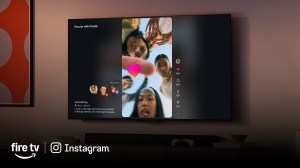CRED founder talks about long term effect of WFH, leaves netizens divided
While some agreed with him and said that passive learning is important for freshers and young employees, others begged to differ.
 The tweet left netizens having mixed opinion about prolonged work-from-home setup.
The tweet left netizens having mixed opinion about prolonged work-from-home setup.With the coronavirus pandemic stretching for almost two years and people stuck at home—everyone is divided if they like it or not. Now, CRED founder Kunal Shah has started a huge debate online after sharing his views on the effects of working from home.
Shah took to Twitter recently to liken the effect of work from home (WFH) to that of children’s virtual learning. “Impact of WFH on youth is the same as [the] impact of children who study at home,” he said, adding: “No real bonds. No real social or network skills.”
“Illusion of understanding and learning. No osmosis,” he argued and said it may be “comfortable but damaging in the long run”.
Impact of WFH on youth is the same as impact of children who study at home.
No real bonds. No real social or network skills. Illusion of understanding and learning. No osmosis.
Comfortable but damaging in the long run.
— Kunal Shah (@kunalb11) February 6, 2022
From March of 2020, as coronavirus disease (Covid-19) spread across the world and people grappled to find ways to work around it, discussions about the impact of social isolation have dominated conversations online. And most people have been divided over the issue.
While some argued WFH only added to their responsibility and stress, especially for people with smaller children, others used the moment and turned it into fun calling it “work from anywhere”.
Shah’s tweet just reignited the debate and people shared their diverse opinions on the issue. While some agreed with him and said that passive learning is important for freshers and young employees, others begged to differ. Some said that while his statement may be true for children, it can’t be said for adults as work-life balance is often in shambles.
Check out how people reacted here:
Can feel the social part evaporate out of "human are social beings". Fml https://t.co/IrQ3dl1euY
— Ezan Shakya (@eforezan) February 8, 2022
You don't go to work to marry your boss.
Professional bonds can be formed even while wfh. Of course it takes some effort.
Family/personal life is boosted which is significant benefit.
Every organisation has these uncles who believe otherwise. https://t.co/kyyqjHQhPJ
— Agasti Tari, CFA, FRM (@AgastiTari) February 7, 2022
Counter-intuitive given how startups these days offer WFH as a perk to show their support towards work-life balance, but a view that's very relevant for a start-up hiring freshers/young talent who need a support network and a collaborative environment! https://t.co/nC1w7Kahwc
— Sahil Shah (@SahilS96) February 7, 2022
I call BS. I'd think that this personal preference & motivation. Scores of "school going" kids have the poor social skills and learning inclinations. Same with many "office going" workers, who just use the office as a space to waste time. And surely, the opposite is true as well. https://t.co/c7R3XQeDJc
— Abhay Bhargav (@abhaybhargav) February 7, 2022
I agree to some extent. Remote learning is bad for children or teenagers. I feel bad for my nephew whose teenager time was robbed by Covid. He didn't see his friends often. 😢
Story continues below this adHowever, remote working (for adults) is a different story. https://t.co/8NW93suS5n
— Arjuna Sky Kok (@arjunaskykok) February 7, 2022
I'm a victim of WFH. I want to learn from seniors & juniors. Passive learning is a must. https://t.co/5Ij2ucZRMN
— SANJE.ETH (@sanjeethboddi) February 7, 2022
Benefits include:
Not spending 4 hours to and fro traveling to work
Not feeling out of the place
Not having to comply to social norms in a desparate attempt to fit in
Finally striking that work-life balance
Increased productivity https://t.co/W3X1A55B6x— Divya (@ivy_kain) February 7, 2022
Don't agree.
What we compare here is 2 diff age groups.
Their needs n mindset r diff.
Also wfh allows work 2 b treated as it is. A source of earning livelihood, and not life. https://t.co/dXc2Rlyzl9— Rajdeep Gajjar (@Imrajdeepgajjar) February 7, 2022
Kunal when there was no school or college people still progressed.
People don't progress at the office by doing a mundane job they progress by finding new exciting alternatives.
Many people who did WFH are now happy & found something else to work on for the rest of their life.
— Kashif Raza (@simplykashif) February 6, 2022
Strongly disagree!
Remote work is democratizing opportunity. And the youngsters of today, mostly the ones living in poor countries, will benefit the most.
Story continues below this adFor the first time ever, they'll have access to opportunities that their parents didn't!https://t.co/qEUVjXECvV
— Sergio Pereira 🚀 (@SergioRocks) February 6, 2022
“Comfortable but damaging in the long run ? “
Show me the evidence to substantive your claims . It’s quite easy to pass off such blanket statements to appear smart on Twitter
— CA Rachna Desai (@tumblingweed6) February 7, 2022
But now when students are forced to study from home, after completing 1 year of college from home, personally I feel like in that time, while my emotional maturity increased, my social maturity level is still where it was in 2019. (2/2)
— Anirudh Amudan (@anirudhamudanYT) February 6, 2022
There are children who don't even have mobile phones /laptops / systems to access online classes as there is only 1 phone in the whole family which father /mother is taking away at their workplace.There is overlapping of classes in case of 1+ school going child in family.
— Rinki Sharma (@RinkiSharma) February 6, 2022
I met more than 15 WFH professionals in a village, got a chance as they were playing basketball in a field on Sunday evening.
I noticed real bonds, celebration, networking, native culture & more.
Importantly, they are happy and competent in their fields of contribution!
— Venkat🐦 (@VenkatTerugu) February 7, 2022
"In the long run, we are all dead."
Story continues below this adMaybe, it's true. No osmosis. But the trade-off is any day worth it.
More freedom. More time with family & friends. More health. More time for non-career skills. More leisure travel
WFH puts work in its right place. It cannot become life.
— Savan (@SavanC17) February 6, 2022
After the serious discussion, Shah even started a poll to resolve the matter. “Work from Home has made your colleagues way more transactional (and less cordial),” he asked in a Twitter poll. However, there too people seem to have different opinions.
Work from Home has made your colleagues way more transactional (and less cordial)
— Kunal Shah (@kunalb11) February 7, 2022
- 01
- 02
- 03
- 04
- 05































